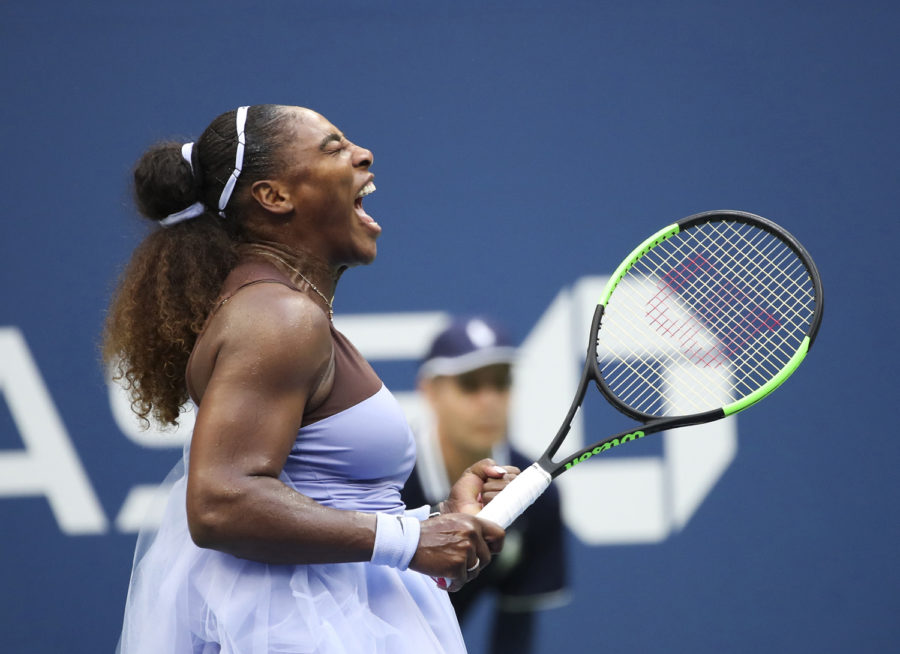Editorial: GQ’s “Woman” of the Year cover insensitive
Serena Williams celebrates during her women’s singles fourth-round victory against Kaia Kanepi at the 2018 U.S. Open on Sunday, Sept. 2, in Flushing Meadows, New York.
November 16, 2018
Serena Williams is no stranger to controversy — just two months ago she was the subject of a racist cartoon that went viral and sparked international outrage. Now, another publication’s representation of the tennis star has caused a “racquet” on social media.
GQ magazine released four covers this week featuring three men of the year — Michael Jordan, Henry Golding and Jonah Hill — and one “woman” of the year, Serena Williams. That’s “woman” in quotation marks, which has drawn the ire of fans on social media since the cover’s release. This stylistic choice completely ignores the important context of Williams’ history in the public eye.
Mick Rouse, a research manager at GQ, defended the cover on Twitter, responding to one user’s question about the necessity of the quotation marks saying, “it was handwritten by Virgil Abloh of Off-White, who has styled everything in quotation marks as of late (see Serena’s US Open apparel that he designed).”
Abloh does indeed have a habit of sticking quotation marks around the names of just about everything he designs. He sells a pair of boots he calls “For Walking,” a handbag called “Sculpture” and a website aptly titled “Website.”
However, there’s a fine line in this situation between making an artistic statement and making an insensitive remark — Abloh simply might not have been the best choice to design Williams’ cover.
Williams has been body shamed for years, from her hair to her body to her clothing. She has a history of being masculinized due to her muscular stature, which is often a problem for black female athletes. Earlier this year during the French Open, she wore a catsuit during one of her matches. French Tennis Federation president Bernard Giudicelli put an informal ban on catsuits at the French Open in response to this during an interview with Tennis Magazine.
“[Serena’s outfit] this year … it will no longer be accepted,” he said. “You have to respect the game and the place.”
Giudicelli failed to recognize that Williams wore the catsuit not only for the purpose of fashion — she wore it for health reasons and to inspire mothers. She had just come back from giving birth to her daughter, and was prone to blood clots. The catsuit was a way to help her keep her blood flowing while playing.
The quotation marks seem to be an attack on Williams in particular because previous women awarded the title Woman of the Year haven’t been presented in the same way — last year Gal Gadot, the actress who played Wonder Woman, was featured on a GQ cover with the title “Wonder Woman of the Year.”
If GQ thought this was a way of showing progress, then they missed the ball. Rather than crossing out the word “Men” and writing “Woman” above it, it would make much more sense to allow “Woman” to stand on its own, free of punctuation marks that suggest the award is conciliatory or a jab.






